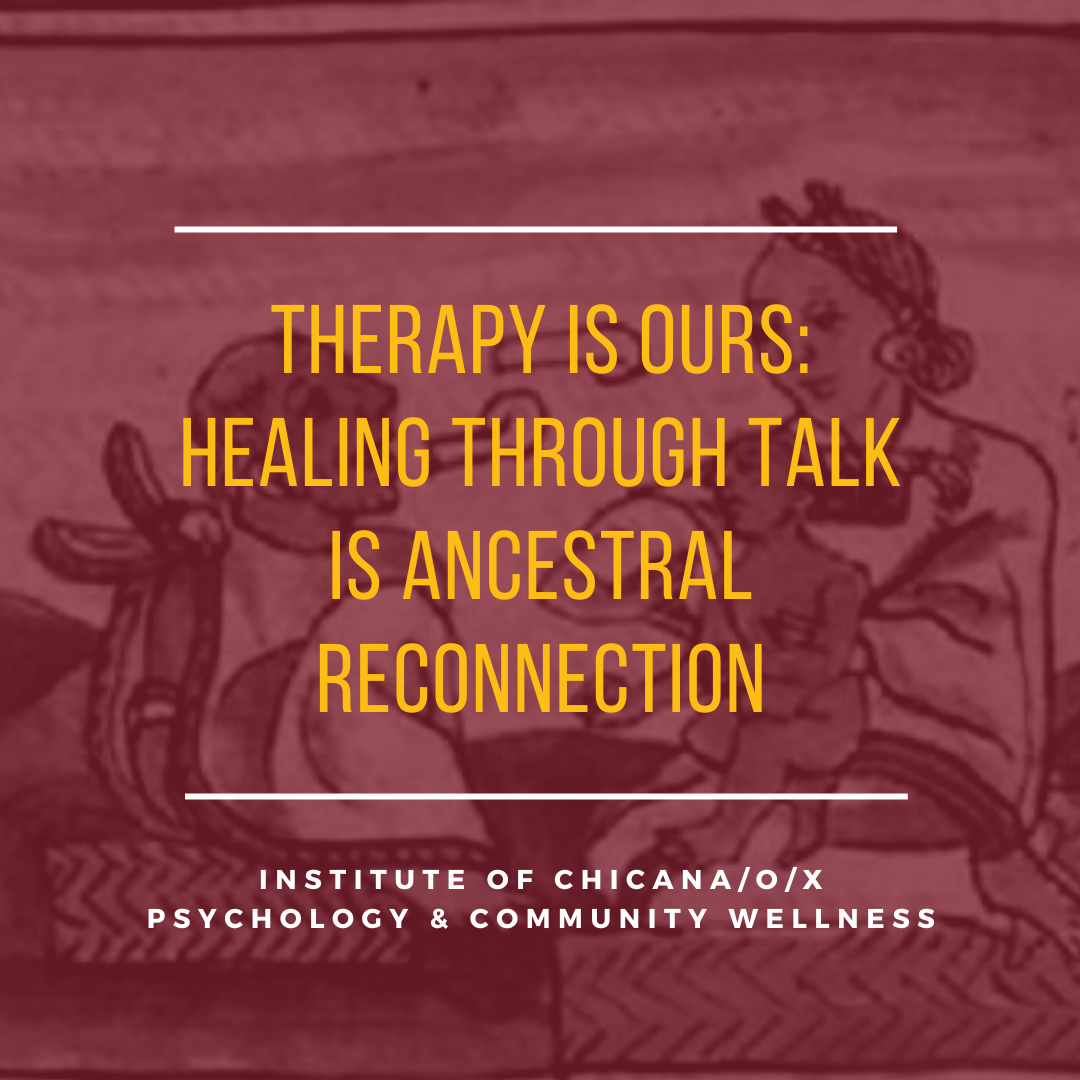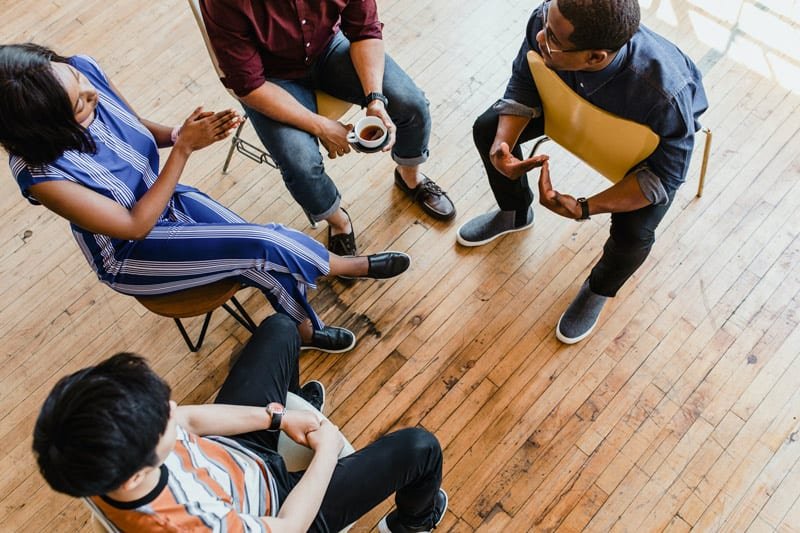Roadblocks to Decolonizing Clinical Practice
I am often asked “How do we decolonize the field?” Of course there are many answers but one that comes up often for me is that we need to stop the worship of individualism and we need to stop equating individualism with wellness.
Colonizing practices are those that reproduce the existing conditions of oppression by failing to challenge the hegemonic views that marginalize groups of people, perpetuate deficit-based ideologies, and continue to disenfranchise diverse clients and communities.
An often taken for granted, unchecked perspective of clinicians about clients or potential clients is that clients should behave in certain ways that demonstrate they are truly invested in therapy. This is often has an individualistic bias and a “pull yourself up by your own bootstraps” mentality. You hear this particularly with clinicians have those informal conversations with each other about the clients they are seeing. Essentially we have this notion of explicitly and implicitly defining “good” and “bad” clients.
The following roadblocks are in quotes because each of them can and often are important aspects of therapeutic healing, however, in the field they are taken-or-granted components for successful therapy with little consideration for culture or context. These are exclusively individualistic perspectives that are often imposed on our clients by well-meaning therapists. In fact, without our explicit awareness that they are specifically individualistic and capitalistic notions, we also impose these on ourselves as mental health professionals.
“Personal Responsibility”
Many times therapists use this concept with blinders that exclude context, history, and systems of inequality that can limit or impact the ease of movement toward healing for Brown and other racially marginalized populations. If we impose this concept without context it further invalidates the experiences of our people. When we bring this concept of ‘personal responsibility” out in session as “lesson” for our Brown and BIPOC clients, we are most likely imposing a White, Eurocentric, individualistic notion of “responsibility”and have stopped looking for the existing competence and autonomy that the client currently possesses.
“Not ready for change”
Typical help offering behaviors of therapists can be met with a hesitancy from Brown and BIPOC clients to address the issue directly and clients may continue to speak indirectly. When this happens, we should take note not to solely evaluate this behavior from a Western perspective and assume the client is "not ready" for change. Judging indirect communication as unhealthy and avoidant is an error often made when we only know how to look at the world from an individualistic lens. Often it is not the client who is not ready to change, but us who is not ready to change.
“Can’t change others. Let’s focus on you”
This phrase and sentiment is often used to redirect clients when they begin to discuss behaviors of others in their lives that they see as problematic for themselves. However, this perspective is also overtly individualistic and can also be patronizing for a client who is more collectivistic. Sometimes focusing on others' behaviors is just as important if you have a more relational view of the self. Additionally, others' behaviors are crucial to consider when those behaviors are racist, discriminatory, or oppressive toward Brown and BIPOC clients.
“Doing work in therapy”
This is a clearly capitalistic notion that implies we need to put more effort toward our therapy goals or we will remain stuck. This becomes problematic when counseling is only seen as successful if there is this “work”. Sometimes the process requires things to settle. We need to be still and observe. This notion only counts success if there is a product to show for it.
“My” client
This also is a capitalistic notion that connotates ownership. If we use ownership langues it reinforces a hierarchy. Although, this is way of speaking may not directly have a negative impact on clients, it is still a roadblock to decolonizing because it allows us to ride the status quo of an ownership mentally. This is particularly important when we are actively trying to decolonize. We must do all we can in subtle and not subtle ways to remind ourselves that clients do not belong to us, especially Brown and BIPOC clients.
Dr. Manuel X. Zamarripa, Chicano Psychologist
Talking as a path toward healing is one of our many ancestral gifts. Although the roots of what is now known as therapy was not developed with Brown people in mind, the wisdom of sharing our struggles and pains through talk has a long tradition in our ancestral past. Our indigenous ancestors would reach out to elders, to their community, their circle for healing. Chicano psychologist, Amadao Padilla, in his research talked of the tonalpouhqui, who were individuals in Mexica (Aztec) society who focused on mental health issues and healed people via lengthy conversations.
Despite the stigma around therapy, it’s important to realize that even our current cultural characteristics lend themselves to a process of healing through talk (i.e. counseling) in various ways. Below are some common aspects of current therapy that are similar to current cultural practices in our Brown population:
Plática is a pathway to personal and therapeutic connection.
Our common cultural practice of plática brings us a sense of comfort; a sense of home. In talking with a therapist, plática is an important part of the process. Imagine the therapist is inviting you over for café and pan dulce. Although therapy is more than just this, the practice of plática is a culturally relevant way to introduce the concept of counseling.
2. We have the cultural practice of Personalismo.
Personalismo is about individualizing each interaction you have with others. Its purpose is to know, more personally, the person in front of you. We see this practiced often in our communities. In the same way, therapy is always customized with each different, unique person who comes into the room. The therapist’s job to learn about your specific story about your life that you are bringing to the process.
3. Our cultural styles of interaction values a treatment that emphasizes affect rather than cognition (Roll, Millen, & Martinez, 1980).
In their discussion of the 7 Latina/o/x psychological strengths, Raza psychologists Hector Adames and Nayeli Chavez-Dueñas found that we have a strong ability and desire to share strong emotions with each other (i.e. collective emotional expression). Likewise, a main aspect of current counseling is to “connect with our emotions.” Speaking from the heart (affect) is a significant way in which we communicate with each other. This is important for therapists to know so that they can find a way to translate that emotional expression/connection that happens in our daily life into the “emotional talk” that they are trying to facilitate in the room.
4. Interconnectedness is a central belief in Chicanx/Latinx healing (Cosmas-Diaz, 2006).
We know that collectivism, interdependence, and familismo are threads that run through Brown culture in many aspects of our lives. This sense of community and peoplehood is often seen at the (extended) family level. This value can also be seen in counseling as therapists have increasingly realized that we can’t always “do it all ourselves” as many self-care gurus will say. Thus, therapists should be able to realize and recognize this cultural value that we also carry with us when we are in the healing process of counseling.
For these reasons, I say “therapy is ours.”.. In other words, although going to a therapist may still feel very foreign, many of the concepts that exist in therapy are not foreign to our community. In fact, our ancestors have practiced “healing through talk” for centuries. So, yes, therapy is ours; and not just for Raza, but for other communities of color who have strong collectivistic values. It is another healing way that we can reclaim and reconnect to.
Of course it is up to the therapist to respectfully incorporate these practices and connect them to treatment, however, it is also important for our community to know that our culture already has practices that the mental health field proclaims are so important for successful therapy.
Dr. Manuel X. Zamarripa, Chicano Psychologist
5 Barriers to Therapy for Raza
It all begins with an idea.
The mental health field is not responsive to the centrality of connectedness in our culture.
The field continues to teach, train and operate from a predominantly individualistic, Western perspective. The mainstream approaches and theories are founded on an individualistic sense of “the self.” Chicana/o/x and Latina/o/x populations are generally more collectivistic, valuing interdependence or pro-dependence.
The mental health field is not responsive to the historical and contemporary marginalization of Raza
The mental health field struggles to make the process of therapy less foreign and less inaccessible. It is not responsive to the fact that Raza have a long history of not feeling welcome by the profession (as well as a long history of marginalization from U.S. society’s major institutions such as health care and mental health care).
The mental health field is not responsive to Raza who do not speak (or feel comfortable) speaking English.
The field is not responsive to the language needs and preferences of many Raza clients. The amount of bilingual therapists is not proportional to the amount of bilingual Raza. In a nationwide APA survey, only 5.5 percent of psychologists, who may be Hispanic or another race or ethnicity, said they can provide services in Spanish.
The mental health field is not responsive to the lack of Raza representation.
Representation matters and the field is not doing enough to recruit and retain Brown students toward a path in mental health.This includes recruiting and retaining Brown faculty and instructors in the field. Only 6.9% of all therapists are Raza.
The mental health field is not responsive to existing cultural preferences and practices that complements contemporary therapy.
In a field that often champions “strength-based approaches”, they have not sufficiently utilized the strengths in Brown communities that can bridge the gaps in utilizing mental health services. Although there is real stigma associated with mental health treatment in our community, there are also many aspects of our culture that are very much in line with the process of therapy. We tend to prefer a focus on affect rather than cognition in our interactions. We value connecting with others (personalismo) and the notion of platica is firmly rooted in our ways of relating to each other. The field has not incorporated and responsively adjusted its approaches to actively include these aspects in mainstream therapy.






